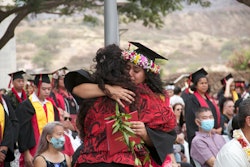Dr. Judy Sakaki, president of Sonoma State University, has been committed to leading, developing and implementing best practices in access, affordability, inclusion and student success.
Sakaki has worked in higher ed for more than 30 years and she is the first Japanese American woman to lead a four-year institution. Sakaki has made strides in improving the graduation rate at SSU since she assumed the SSU presidency in 2016.
In a Q&A with Diverse, Sakaki gives her take on why there are few Asian Americans leading in higher ed, recent hate crimes against members of the AAPI community and how she led her school through the rebuilding process in the aftermath of a devastating wildfire.
DI: When did you know that you wanted to work in higher education?
JS: I am a first-generation college student. I am who I am because of my cultural background, the experiences that I have had and my education. My life was changed and my eyes were opened to possibilities that I never knew existed because I went to college. As a result, I wanted to work with students. My first job at a university was as an outreach counselor, where I spoke with high school students in Oakland, my hometown, about educational opportunities.
DI: Why do you believe Asian Americans are underrepresented when it comes to the top positions of leadership at higher ed institutions?
JS: That’s a complex question. There were, and still are, so few Asian American leaders in higher education. I never had role models or mentors who looked like me. There is implicit bias and stereotyping. Sometimes a member of a board or search committee may think that an Asian American candidate may not be a strong leader. Additionally, we often do not take sole credit for our accomplishments and we may not tout them enough in an interview. Then, if we do decide to apply for a senior university leadership position, I have found that many Asian Americans and candidates of color simply do not know enough about search firms, executive coaching and other aspects of the search process.




















